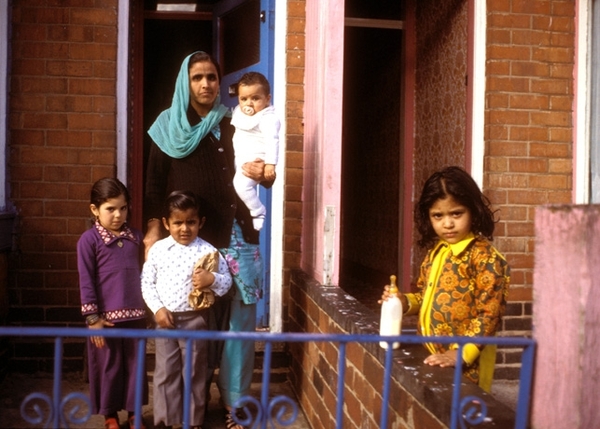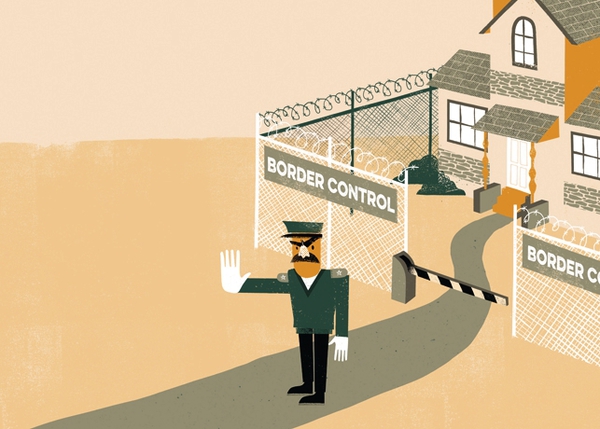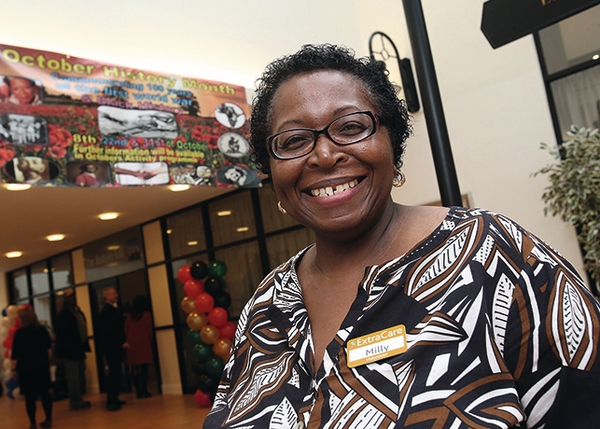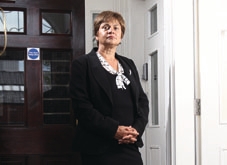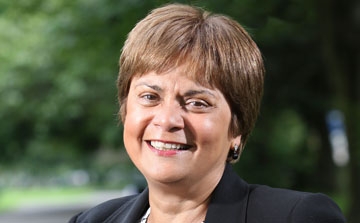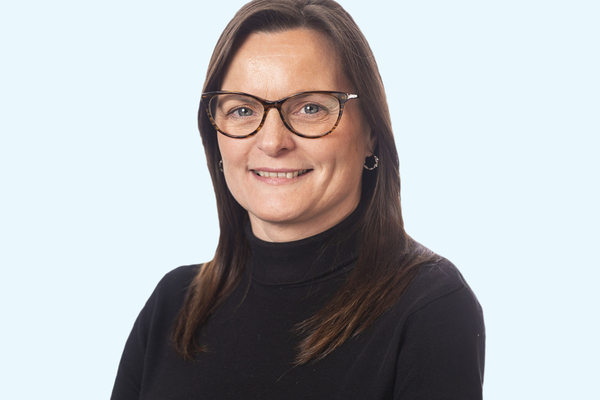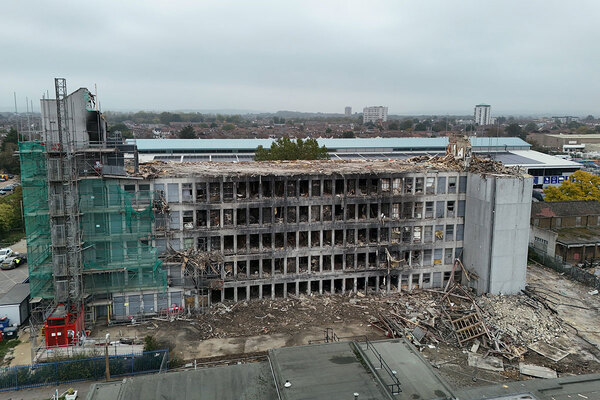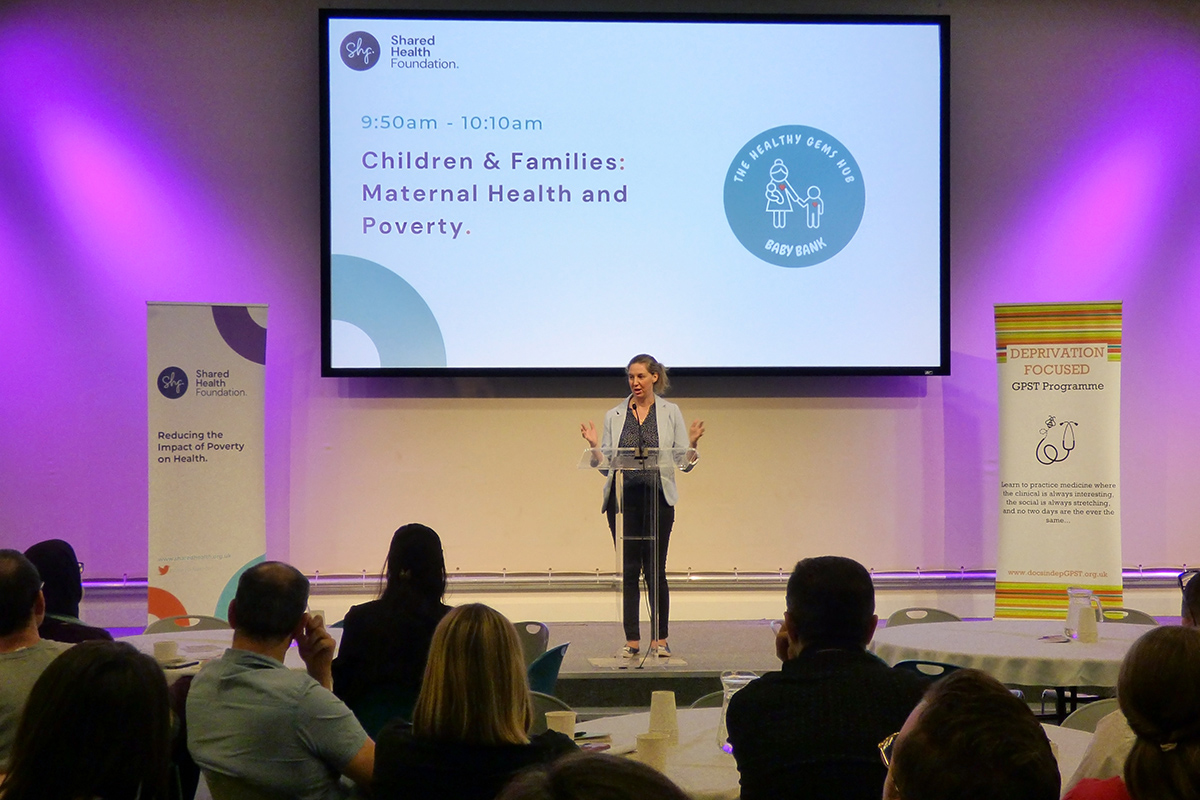You are viewing 1 of your 1 free articles
Speaking up for black and ethnic communities
As Cym D’Souza takes the helm after a turbulent time for BME National, she tells Martin Hilditch how she plans to speak up for black and ethnic communities
Cym D’Souza sounds as though she is still reeling from her sudden elevation to the role of chair of BME National.’It’s a bit of a shock situation,’ she says by way of introduction. ‘Here I am.’
Ms D’Souza took the helm in May, following a period of turbulence for the organisation, which represents black and minority ethnic (BME) housing organisations in the UK. Its previous high-profile chair, Lara Oyedele, stepped down after a dispute with the board of her housing association, Odu-Dua.
Ms Oyedele, Odu-Dua’s chief executive, was suspended in October 2013 for allegedly recruiting new board members without the knowledge of the board. Following a disciplinary hearing on 27 January, she was dismissed in February for gross misconduct.
If the reason for the vacancy was a surprise, the fact that Ms D’Souza landed the role should not be. As chief executive of Arawak Walton, a 950-home association based in the north west, she has been a well-respected figure in the BME housing movement for years and was already on BME National’s executive.
Agenda setting
With an approachable, chatty style and a clear sense of purpose, Ms D’Souza appears to be a natural choice. She’s certainly throwing herself into the job.
She fits the interview into her busy schedule - we meet in the offices of housing association Nehemiah UCHA, on the outskirts of Birmingham, rather than her own office, before she has a meeting with its chief executive, Llewellyn Graham.
So is BME National likely to change much under Ms D’Souza, what are her plans for the future, and what does she make of the controversy that led to her landing the job? Ms D’Souza says her initial plan of action is to ‘put ourselves back on the map in a positive way’.
‘BME National has had - let’s face it - a bit of a bad press over the last six months or so. We just need to get back on track in terms of being clear that we’ve got a great deal to offer movers and shakers in housing.’
She doesn’t feel that the circumstances that led to Ms Oyedele’s departure have been damaging, however. In fact she believes BME National should exploit the attention.
‘It has meant that people have been asking about BME National and what it’s been doing, and what’s going on - maybe for the wrong reasons, but at least it means they’re interested. We can use that as a platform, actually, to say: “Hey, here we are still and we’re going to be stronger.”’
She’s diplomatic, but doesn’t shy away from the question when asked about BME National’s relationship with Odu-Dua and its former chair. The housing association is still a key member of BME National, she states, managing its website, for example.
‘I think people have a lot of respect for Lara [Oyedele] and a lot of respect for what Odu-Dua does. At the end of the day, people will come to their own conclusions because I have no idea what was going on in that organisation. That’s their business really.’
That’s the past put firmly to bed, then. And, if Ms D’Souza came into her current role thanks to a quirk of fate, it will not be the first time. A chartered accountant, she landed her initial job in the housing sector - as financial director of Collingwood Housing Association in Stockport - back in 1987, after being made redundant from textiles manufacturer Carrington Viyella.
‘I had just had my son and I needed a safe port of call,’ she says. She was quickly hooked, though.
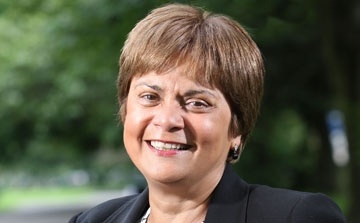
Source: Lorne Campbell / Guzelian
‘You get swept up in that ethos of wanting to do good,’ she states. ‘It sounds a bit trite, but the first time I went round, doing the scheme visits on my induction, you meet the people and hear some of the stories and I suddenly thought: “You know what, actually, this is something that has values.”
‘When you’re an accountant, it’s all about figures. I had to get my head round the not-for-profit stuff.’ After leaving Collingwood in 1991 she became a housing consultant and later spent a further 18 months at Harvest Housing Association before moving in 1997 to Arawak Walton, where she became chief executive the following year. The 1,000 homes for which it is now responsible is double the number she inherited.
Does she plan a similar expansion of BME National? It quickly becomes clear that, although it will still act as a body that represents its members’ interests, she also sees it as having a broader remit than in the past.
‘It’s got to be about the wider world and sending out messages,’ she says. In other words, BME National will speak out more often about issues that affect BME communities.
‘BME National has a role in addressing the needs of multicultural communities and understanding what those communities need,’ she says.
‘At times like this, when immigrants - and I include myself in that - are getting a really bad press, it’s important that somebody stands up and says: “Well, hang on a minute, here are all the good things that BME communities have achieved.”’
Immigration policy
There are pressing reasons for doing so, she feels - particularly as immigration rises up the political agenda, in part because of the UK Independence Party’s (UKIP) campaign for the local and European elections in May.
‘When times are difficult and everyone’s under pressure, then you look for scapegoats,’ she says. ‘That’s what people - dare I say it, the UKIPs of this world - do. They prey on people’s fear.’
Ms D’Souza has personal experience of the fall-out of this, saying that she has ‘suffered racism for most of my life’ - her family moved to Oldham from India in 1964 when she was six years old.
‘I can remember when I was seven or eight, people saying: “Go back to India.” I was the only person of colour in my school for about five years. That was quite hard. Through my school years was very, very difficult.’
Under Ms D’Souza, BME National hopes to influence new allocation policies. Councils were given powers to change their policies in 2012 and were strongly encouraged by the government to introduce rules favouring applicants with a local connection.
Research by Inside Housing, published last month, suggests that since that time, the proportion of new social housing lets to black and minority ethnic households in England has fallen significantly (although it is not clear whether the two are connected).
Ms D’Souza believes some of the changes could lead to policies that allocate homes for ‘families and friends virtually’, unless people are taking up employment opportunities.
National curriculum
Giving specific communities a voice at the national level should be one of the roles for BME National, she feels. And, indeed, on a local level, there is still a need for BME providers who can respond to specific needs.
‘We’re one of the few associations that provide security alarms to all our ground-floor properties because our residents still face so much discrimination and active racism,’ she states. In one example, Arawak Walton housed two Somali families on the edge of one estate ‘and they were facing such discrimination that we ended up having to build fencing round [their home] at what was literally a week’s notice’.
‘People don’t realise that sort of thing is still rife, and racism is alive and well and kicking, thank you very much,’ she says. ‘It cost us a lot of money having to do that. In a mainstream organisation - and that’s no disrespect - there would be some [issues with] budgets.’
The rest of the year promises to be busy for BME National too. In partnership with the Human City Institute, it will be carrying out a series of activities, including chronicling the legacy of how BME associations have improved the lives and life chances of their communities.
There will also be a ‘future-scoping’ exercise to help identify new markets for BME housing associations - collectively ‘the biggest BME business in Europe’ - and how more effective partnering might be developed with councils, mainstream housing associations, as well as emerging BME communities with unmet needs (see box, left). The work, supported by the National Housing Federation, will result in a prospectus later this year.
‘For BME National the research is going to be about how do we maintain our relevance in the new world,’ says Ms D’Souza. Even mainstream social housing providers are struggling to communicate to government that they are about anything other than building new homes, she adds.
History lessons
Talking about the history of the BME movement is vital because ‘it’s important that people understand that there’s a legacy of really good work that we bring with us’.
‘That’s what makes us special and different,’ Ms D’Souza states. ‘We are dealing with disadvantaged groups that have faced disadvantage for an awfully long time.’
And her ultimate goal?
‘Ideally we should all be out of business,’ Ms D’Souza concludes. ‘Surely, in the 21st century, there shouldn’t be a need for BME housing associations? Sadly, I think that’s not the case.’
BME National’s future plans
- To chronicle the legacy of the black and minority ethnic (BME) housing sector and provide evidence of deep roots in diverse communities on which future work can be built
- To develop an evidence base of the shape, performance and achievements of the BME housing movement using existing data sets, a survey of BME tenants, focus groups and case studies
- To undertake a ‘future-scoping’ exercise to help identify new markets and work areas for BME housing organisations
- To run a media campaign and influencing strategy
- To create a BME National prospectus for the future linked to recommendations from the research findings
